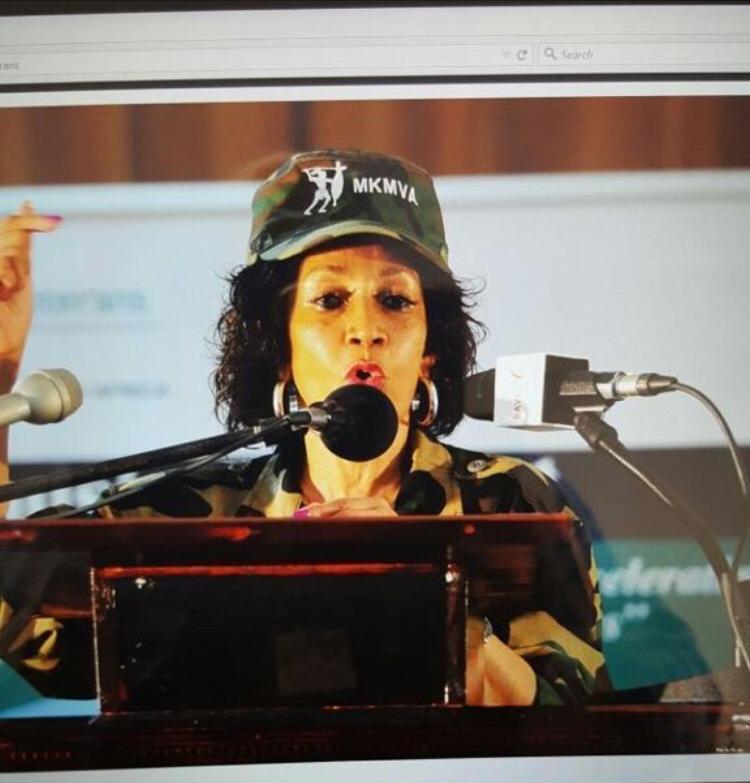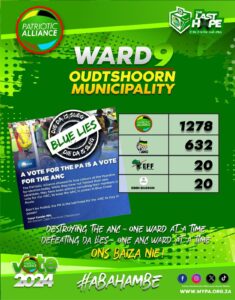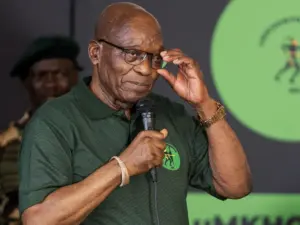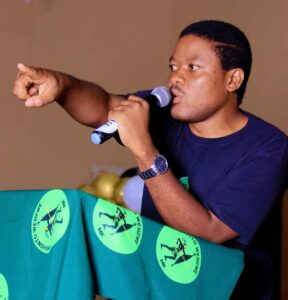By: Lindiwe N. Sisulu
-Shireen Abu Akleh’s murder compels us to renew our justified solidarity pledges –
Shireen Abu Akleh, a woman and veteran AL Jazeera journalist, died on 11 May. She did not succumb to sickness, human frailty, a freak accident, or the modern COVID- related causes. Akleh died a brutal and undeserving nauseating death. Death of a hail of bullets at the hands of Israeli Forces. Akleh a longstanding member of the press corps was on duty. The evidence for such was that her identifiable media outfit, beyond any doubt, distinguished her and her team from others. Akleh’s death was not ordinary, but the 51-year-old was callously gunned down with a headshot, and her blood flowed on the soil of occupied Palestine, where she worked despite her American Citizenship.
A complete human with a beautiful soul regrettably died not as the first journalist killed by Israeli forces but as the 45th Al Jazeera journalist since 2000. We knew Akleh’s face from her many broadcasts, and her death rallied support from across the globe. If her death laid bare evidence of naked brutality, her funeral would show the despicable and inhumane character of the IDF. Shall I say the Israeli forces’ ungodly brutality, who were determined to show their brute power, as they on this solemn occasion would fight with mourners? I, along with billions, watched as her physical remains, in a traditional and cultural sense, held aloft by mourners on at least two instances, almost dropped to the floor. Live news feeds broadcasted Israeli police setting off stun grenades and beating mourners with batons. We saw Israeli forces on horseback confronting mourners in the most inhumane manner. The tussle for the Palestinian flag, which IDF members desperately and forcefully sought to remove from the mourners, involuntarily mirrored a time in apartheid – South Africa in 1987. On this specific day, 20 July 1987, the apartheid SADF, with similar brutality, employed vicious means to tear the ANC flag from mourners at the funeral of an MK soldier Ashley Kriel who also gallantly died in a hail of bullets in Bonteheuwel, Cape Town.
Akleh, born to a Christian Palestinian family, whose first interest in a career was civil engineering, abandoned the latter for what we now know as her life vocation, a sense of calling, to bring into homes the actual conditions of occupied Palestine as a daily reality. In a sense, Akleh became a voice for the voiceless, her nation’s rightful and legitimate liberation cause. In a unique and unparalleled display of national unity in recent history, Akleh rightfully transitioned from journalist to martyr for the Palestinian struggle. Abu Akleh was buried from her church in Jerusalem hardly 48 hours after being gunned down. The spontaneous outpouring of grief that showed no respect for all manufactured boundaries such as religion, gender, and economic status remains a true sign of humanity’s beauty. Her death and subsequent burial only galvanised support for the Cause of Palestine. This support is necessarily the antithesis of the one who pulled the trigger that ended her life. In the aftermath of her death, the spin doctors of Zionist interest, as was expected, began shifting blame for her death to Palestinians while offering an investigation that suggested the USA participates in such. We have hitherto seen a lacklustre statement from the USA administration, nothing remotely as substantial as its quest to deal with Vladimir Putin and Russia.
Occupied Palestine and Apartheid South Africa share so many common trademarks; hence the occupation of Palestine compels one to speak up. The injustices perpetrated in this part of the world are not strange for South Africans; Palestine today arguably remains the last apartheid state.
There is much to critique about our government’s policies, the failure to execute our excellent policies appropriately, and the tragic ways our democratic experiment has lost its way. I have tried to be honest and vocal about those in hopes of awakening the proper response to these painful truths: the widening, scandalous, and dangerous gap between rich and poor – one of the most significant challenges this country is facing and still seems to be ignoring; about the failure of the rightful redistribution of land, wealth and power, and the undeniable shortcomings of our Constitution and the judiciary in rectifying these.
My concerns about the uncritical, unwise haste we embraced neo-liberal capitalism have deepened. You understand this better when you read the words of respected economist Duma Gqubule in his 15 May Sunday Times opinion piece under the headline ‘The worst ANC economic policy discussion document I have read.’ Gqubule cautions: “The government must stop talking about an infrastructure-led recovery until it explains what it will do to reverse the public sector investment strike. Second, the recovery plan has pinned its hopes on structural reforms and a neoliberal catchphrase, ‘blended finance,’ to unleash an improbable new wave of private sector investment. Structural reform is code for privatisation, deregulation, liberalisation, and the State’s withdrawal from network industries – electricity, transport, telecoms, and water. It refers to measures to improve the economy’s supply-side by removing institutional and regulatory impediments to the functioning of free markets.”
So has my distress at our captured reconciliation process and our crippled transformation. And as responsible citizens, we should engage in robust, honest public discourse and action on these and other crucial matters.
However, one of the things I am grateful for and equally proud of is some of the wise choices we have made in foreign policy. Central to them is our unwavering demand and support for Palestinian freedom, self-determination, dignity, and the Palestinian right to return. And we have been upfront, honest and clear about this matter from the beginning of this new era.
With the utterly shocking events of the brutal slaying of Abu Akleh, my mind went back to 1990, President Nelson Mandela’s interview hosted by American TV host Ted Koppel at Koppel’s Town Hall meeting. This occasion took place in New York City. On the question of Palestine, on which the discussion lingered, Mr. Mandela was clear. He laid down a few fundamentals applicable to much more than the Palestinian issue, and such has continued to guide our government on these matters. I will mention only two. First, and right off the bat, he touched on the broad expectation in the United States and other powerful countries.
When they decide for themselves, they expect all other countries to follow suit unquestioningly. “The one thing which some countries always get wrong,” Madiba told Koppel and his audience, in words that solicited some of the loudest applause of the evening, “is that they think that their enemies are our enemies. [But] our attitude to that country is determined by that country’s attitude to our struggle.” This critical and fundamental assertion confirms that we are guided by justice, freedom, dignity, and solidarity principles. No matter what your attitude, as countries of the West, is to these things: for us, they are inestimable values, cardinal to our politics, and central to our existence as dignified people. That also means that we are as committed to the liberation of Palestine as we are to the liberation of South Africa.
Secondly, Madiba made clear that principles matter in this matter: “For anybody who changes their principles depending on whom they are speaking with, that is not a person who can be a leader of their nation.” Those are words we as political leaders should earnestly take to heart. It is because principles do matter. It certainly mattered when I recalled our Ambassador to Israel and downgraded our presence there in response to the slaughter of the people of Gaza in 2014. I did so because I acted in fulfillment of the resolutions of the 54th Conference of the ANC. I also did it out of principle. And now, after so many deaths since the Nakba, with the cold-blooded assassination of a courageous and principled Palestinian journalist, one in a long list of fatalities just since the beginning of this year. Again, we are at that point: South Africa must, clearly, and unequivocally, act out of principle and dare not wilt on what we solemnly pledged.
This is especially crucial in light of what is happening in Ukraine today. We have been seeing unprecedented, unequalled, and unceasing waves of sympathy and solidarity with the people of Ukraine, unending streams of weapons to help Ukraine win that war, and mind-boggling sums of money, with $40 billion from the United States in the month of May. The most recent generous support comes on the back of the $800million tranche, not to mention the artillery, weaponry, and, shall I say, toys-of-war the USA and other European nations that have flooded into Ukraine. The suffering of the people of Ukraine is on every media outlet 24/7. The sanctions that Black South Africans and our allies have been fighting for over twenty years and have always been told that they were “impossible,” “impractical,” or moral” have suddenly become practical, doable, possible, and moral overnight.

Leaving aside the reasons and justifications for the war, for me, this moment raises the all-important question: where was this tsunami of sympathy and solidarity with the Palestinians over the last seventy-four years since the Nakba? Why did the deaths of so many mothers and children, medical personnel and activists in wheelchairs, and even journalists targeted and wiped out with impunity in each instance not raise even a fraction of the indignation we see now or the intense feelings we witness for the people of Ukraine? South Africans should now stand up to condemn this glaring hypocrisy, screaming selectivity, and double-standard politics. We should be clear: Shireen Abu Akleh did not die. She appears to have been singled out as targeted and then brutally murdered. The world must not be in doubt as to where we stand. Madiba would have expected no less from us. On 24 June, UN News under the heading Abu Akleh shooting: fatal shot came from Israeli forces, says OHCHR identified Israeli Forces as responsible for the killing of Abu Akleh. According to the UN human rights office, OHCHR n such report, Israeli Forces are identified as having been behind the shooting of Al Jazeera journalist Shireen Abu Akleh in the West Bank – not indiscriminate Palestinian firing. This most recent conclusion confirms what many already knew. Abu Akleh did not die due to any bullet from the Palestinian side.
Several world organisations have, over time, condemned the ongoing Palestine occupation by Israel. The World Council of Reformed Churches [WCRC] declared the Israeli State an apartheid state years ago. It consistently condemned the occupying as breaking international law and as inhumane. It has called Israel out for its theft of Palestinian-owned land and called on member churches to join Palestinians in their struggle for freedom, justice, and the return to their land. It also strongly supports the Boycott Divest and Sanctions (BDS) Campaign.
The African National Congress’ history in its solidarity stance with the just Palestinian Cause and its quest for freedom from occupation details an elongated consistency that must not, in this season, be eroded.
Shall we recall how its previous leaders, Mandela and Tambo, proved emphatic regarding Palestinian support? On occasion, in 1990, President Nelson Rolihlahla Mandela said: “We identify with them [the Palestinians] because we do not believe it is right for the Israeli government to suppress basic human rights [of the Palestinians].” The longest-serving President of the ANC, Oliver Reginald Tambo, 1992, captured the ANC’s solidarity with a Palestinian Cause with the following words: “I reaffirm the principled solidarity of the African National Congress and the people of South Africa with the struggle of the Palestinian people.”
The April 2002 Summit of the Tripartite Alliance of the African National Congress (ANC), South African Communist Party (SACP), Congress of South African Trade Unions (COSATU), and South African National Civics Organisation (SANCO):
Resolved :
1. The rapidly deteriorating situation in the Middle East, occasioned by Israeli state aggression against the State and people of Palestine, including the killing and maiming civilians; 2. The further occupation of Palestinian land and territory by the Israeli government and the military siege of the home and offices of President Yasser Arafat; 3. The violation by the Israeli government of UN Human Rights treaties and the Geneva Convention and protocols on the treatment of civilians and prisoners of war; 4. The efforts of the Arab States, the United Nations (UN), the UN Security Council, and several other governments, including the government of South Africa, to find a lasting peaceful solution in the Middle East; and,
And Believing That,
The actions of the Israeli government constitute a grave threat to world peace and security. In the context of the continued denial to the Palestinian people of the right to national self-determination, these actions are an affront to the dignity of humanity. The plight of the Palestinian people should be the concern of all the world’s people, regardless of race, nationality, religion, or class. The heightened violence in the region, including attacks against Israeli and Palestinian civilians, endangers efforts to create a climate conducive to peace.
This Summit, therefore,
Expresses its outrage at the continuing Israeli occupation of Palestinian lands in blatant violation of international law and human morality;
Condemns in the strongest possible terms the violence perpetrated by the Israeli occupation forces, which includes extrajudicial killings, the wanton destruction of infrastructure, government installations, and Palestinian homes; Expresses its support for the Peace Plan proposed by the Arab States that recently met in Lebanon;
Calls for the resumption of negotiations between the Palestinian Liberation Organisation (PLO), led by President Yasser Arafat, and the government of Israel to resolve the problems peacefully;
Calls on the government of Israel to 1. Immediately and unconditionally lift the Israeli siege of the home and offices of President Yasser Arafat and the complete withdrawal of all Israeli occupation forces from Palestinian territory. 2. Implement United Nations Security Council (UNSC) Resolutions 1402 and 1403 stipulating immediate Israeli withdrawal from occupied Palestine; 3. Accept President Yasser Arafat as the legitimate representative of the people of Palestine and as a central interlocutor in the critical process of finding a peaceful solution to the ongoing conflict in the Middle East;
Shireen Abu Akleh’s targeted murder by the IDF compels us to remain faithful to the 18 July 2014 statement of the ANC Chief Whip Office. Permit me to quote from such here and now: “As the ANC in Parliament, we stand unapologetically with the people of Palestine and pro- Palestinian campaigners in an endeavour to exert pressure on Israel’s government to comply with the UN Security Council resolutions and stop its killings and gross persecution of Palestinian people. We remain resolute in our view that the only long-lasting peaceful solution to the situation in the Middle East is the attainment of a two-state solution between Israel and Palestine in which the two states exist side by side independently and peacefully. However, our strong condemnation of Israel’s violent aggression does not in any way mean approval of the continuing firing of rockets by Hamas into Israel, which has put the lives of innocent civilians at risk. We echo the call by the South African government for both parties to end all forms of aggression towards one another.”
It went on to say: “The ANC in Parliament will mobilise other political formations in this institution to take a principled stand against Israel’s criminal acts and further ensure that Parliament as an institution formally condemns the deadly violence visited upon the people of Palestine. We will also invite other parties to the lunchtime picketing outside Parliament to support the people of Palestine and call for peace in the Middle East region. Since the death of Akleh, the silence of our Parliament has been deafening. The leadership’s indifference to speak up is palpable and a betrayal of the commitments the ANC consistently has made on the Palestine Cause. As one of the measures to put pressure on Israel, we believe that our government must recall our Ambassador to Israel and ask the Israel ambassador to South Africa to leave with immediate effect.”
On International Day of Solidarity with the Palestinian People in November 2000, President Thabo Mbeki said the conflict could not be resolved unless the international community forced Israel to withdraw from the occupied Palestinian territories. He called for a United Nations-led observer corps to be stationed in the occupied territories over the objections of Israel, which had no “legitimate jurisdiction” in the area.
President Jacob Zuma, in September 2014, addressing the UN general assembly, asserted: “Of concern in this matter has been the helplessness displayed by the UN, especially the UN Security Council, during the current conflict.” Zuma went on to say, “While the UN has done remarkably well in supporting self-determination when it celebrates 70 years of existence next year, this august body may be found wanting by the people of Palestine.”
This conviction and persuasion of an ANC that is not ambivalent nor blowing hot and cold on the Palestine – Israeli occupation burdened my actions in a previous DIRCO portfolio to give effect to the noble resolution of the ANC. In this regard, I stated on occasion in 2019, “Our position on the matter of Israel has been clearly expressed by the ruling party and also our public statements on the occasion of the shooting of protestors in Gaza in [2018]. We immediately recalled our Ambassador for consultation and demarche the Israeli Ambassador to South Africa. We are in the process of following the downgrade resolution of the ruling party, and stage one has been completed. Our Ambassador is back in South Africa, and we will not be replacing him. Our liaison office in Tel Aviv will have no political, trade, or development cooperation mandates. It will not be responsible for trade and commercial activities. The focus of the Liaison Office would be on consular and facilitation of people-to-people relations.”
Upon hearing the news that Shireen Abu Akleh was murdered, I involuntarily remembered a time around 1995/6, while serving as Deputy of Home Affairs, when President Nelson Mandela sent me to the Middle East to meet the late Palestinian leader Yasser Arafat. An integral part of my assignment was to meet with women on both sides of the war divide. While congregating with these fellow sisters defined in Palestinian and Jewish ethnic descriptions, I heard them collectively agree. Our children die, we are against this war, but the men cause this ongoing war. We cannot discount the role of testosterone in this ongoing war that has seen many more maimed, killed, and families robbed from their loved ones.
Unfortunately, what happened with the killing of Abu Akhleh at the hand of Israel is what happens if the occupation of a sovereign country and nation becomes normalised oppression, normalised dehumanisation, normalised torture, normalised impunity, and normalised coverups. Akleh died on the Wednesday and was buried on Friday. As a nation led by the ANC throughout, we are still silent on an outright condemnation of this atrocious and barbaric act committed against a professional, a woman, and a Palestinian.
The pristine resolve of the BRICS community to work for a better equilibrium of the distribution of power to which the ANC and the State committed dare not be sacrificed at the altar of neoliberal dictates. We dare not stand indifferent and send mixed signals when neutrality is the biggest form of partiality. We dare not be trapped in a strange loyalty to capitalist neoliberal interest that incessantly seeks to dictate that we abandon our longstanding solidarity relations. We must be vigilant and not be hoodwinked the desperation of G7 nations cornerstone interests that today are feverishly at work to have us make a mockery of our firm commitments to our BRICS family.
Our silence today is a careless betrayal of what the ANC stands for. It is to surrender to the moribund wanton dictates of arrogant injustice and inhumanity. The ANC must always be on the side of the oppressed. The obligation to speak up and act is borne from the history of struggle and conscious activism we share with the Palestinians, not from today but from always.
*Lindiwe N. Sisulu
ANC NEC & NWC Member and Chairperson of Social Transformation Sub-Committee







